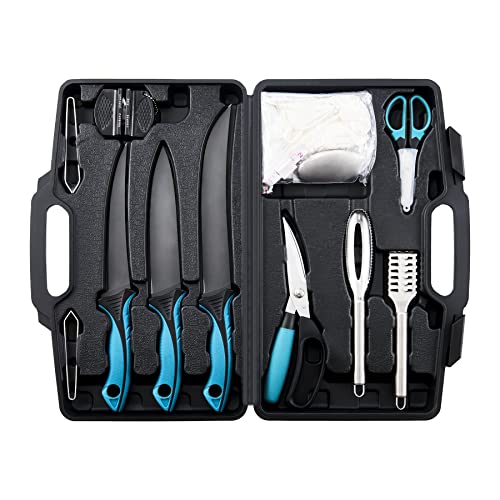When it comes to storing medications, many factors need to be considered, such as temperature, humidity, and light exposure. One common medication that raises questions about storage conditions is heparin. Heparin, a blood thinner used to prevent and treat blood clots, is typically stored in hospitals and pharmacies. But what about at home?
As a general rule, heparin should be stored in a cool and dry place. However, refrigeration is not always necessary. It is important to follow the storage instructions provided by the manufacturer or healthcare professional. In some cases, heparin may need to be refrigerated to maintain its effectiveness and stability.
Heparin is a delicate medication that can be affected by extreme temperatures. If heparin is exposed to excessive heat, it may degrade and lose its potency. On the other hand, if it is exposed to extreme cold, it may freeze and become unusable. Therefore, it is crucial to store heparin at the appropriate temperature to ensure its quality and effectiveness.
Heparin Storage: The Importance of Proper Temperature
Proper storage of heparin is crucial to maintain its effectiveness and safety. Heparin should be stored at the appropriate temperature to ensure its stability and prolong its shelf life.
Refrigeration Requirements
Heparin does not necessarily need to be refrigerated, but it should be stored in a cool place away from direct sunlight and heat sources. It is recommended to store heparin at a temperature between 2°C to 8°C (36°F to 46°F) to maintain its integrity.
Avoid Freezing
While refrigeration is acceptable, freezing should be strictly avoided. Freezing heparin can cause structural changes in the medication, making it less effective. Additionally, the formation of ice crystals during freezing can lead to the degradation of the drug.
It is important to note that different forms and concentrations of heparin may have specific storage requirements. Always refer to the manufacturer’s instructions and product labeling for any specific storage considerations.
Furthermore, it is crucial to ensure the proper handling and storage of heparin to prevent any contamination or damage to the product. Heparin vials should be tightly sealed and stored upright to avoid leakage or contamination.
Remember to check the expiration date of heparin before use. Expired heparin should not be used, as it may have reduced effectiveness or potential risks.
Following proper storage practices for heparin is essential to ensure its stability, quality, and effectiveness. By paying attention to the temperature requirements and avoiding freezing, the integrity of heparin can be maintained, providing the desired therapeutic effects when needed.
The Effect of Refrigeration on Heparin
Heparin is a commonly used anticoagulant medication that is used to prevent blood from clotting. It is typically stored and shipped at refrigerated temperatures to maintain its stability and effectiveness.
Refrigeration helps to preserve the potency of heparin by slowing down the degradation process. Heparin is a sensitive medication and can easily deteriorate if exposed to heat or other adverse conditions. Therefore, it is crucial to store it properly in a refrigerator.
When heparin is refrigerated, it maintains its chemical structure and effectiveness for a longer period. The cold temperature helps to inhibit enzyme activity and slow down the degradation of the drug.
It is important to note that once heparin is removed from the refrigerator, it should not be refrigerated again. This can lead to condensation and moisture buildup, which can compromise the integrity of the medication.
In conclusion, refrigeration is necessary for heparin to maintain its stability and effectiveness. Proper storage and handling of heparin are essential to ensure its potency and safety.
Does Heparin Require Refrigeration?
Heparin, a medication used to prevent blood clots, does not require refrigeration. This injectable drug is typically stored at room temperature, away from direct sunlight and extreme heat or cold.
Heparin has a long shelf life when stored properly, typically around one to two years from the date of manufacture. It is important to check the expiration date before using the medication to ensure it is still effective.
Refrigerating heparin is not recommended as it can lead to the formation of crystals, which can alter the drug’s composition and potentially reduce its effectiveness. Additionally, freezing heparin should be avoided as it can cause irreversible damage to the medication.
When storing heparin, it is important to keep it in its original packaging and away from moisture and humidity. It should be stored in a cool, dry place, such as a medicine cabinet or drawer, where it is easily accessible but out of reach of children or pets.
If you are unsure about the storage requirements of heparin or have any concerns, it is best to consult with a healthcare professional or pharmacist for proper guidance.
Best Practices for Storing Heparin
Proper storage of heparin is essential to maintain its effectiveness and safety. The following best practices should be followed when storing heparin:
- Temperature: Heparin should be stored at room temperature, generally around 20-25°C (68-77°F). Avoid storing heparin in extreme temperatures, such as in direct sunlight or near sources of heat or cold.
- Refrigeration: Heparin does not need to be refrigerated unless specified by the manufacturer or healthcare provider. Check the product label or consult with your healthcare provider for specific storage instructions.
- Proper Packaging: Heparin should be kept in its original packaging until it is ready to be used. This helps protect the medication from light and moisture, which can degrade its effectiveness.
- Avoid Freezing: Heparin should never be frozen. Freezing can cause physical changes to the medication, rendering it ineffective and potentially dangerous to use.
- Keep Away from Children and Pets: Store heparin in a secure location that is out of reach of children and pets. Heparin is a potent medication and accidental ingestion can have serious consequences.
- Check Expiry Dates: Before using heparin, always check the expiry date on the packaging. Expired medication should not be used as it may have reduced effectiveness or pose risks to your health.
- Proper Disposal: If you have unused or expired heparin, it should be properly disposed of according to local regulations or by consulting your pharmacist. Do not flush heparin down the toilet or throw it in the trash where it may be accessed by others.
By following these best practices for storing heparin, you can ensure that the medication remains effective and safe for use.
Understanding Heparin Stability
Heparin is a commonly used anticoagulant medication that helps prevent blood clots. It is frequently prescribed to patients who are at a higher risk of clot formation, such as those undergoing surgery or suffering from certain medical conditions.
In terms of its stability, heparin is known to be a relatively stable medication when stored properly. While it does not necessarily need to be refrigerated, temperature control can play a role in maintaining its potency and effectiveness.
Storage temperature: Heparin should be stored at room temperature, generally between 20-25 degrees Celsius (68-77 degrees Fahrenheit). This temperature range helps ensure that the medication remains effective and maintains its intended therapeutic properties.
Avoid extreme temperatures: It is important to prevent heparin from exposure to extreme heat or cold that may compromise its stability. Extreme temperatures can cause degradation of the medication and affect its efficacy. Avoid keeping it near direct sources of heat or cold, such as radiators or air conditioning vents.
Protect from light: Heparin should also be protected from direct exposure to light. Prolonged exposure to light can cause oxidative reactions that may lead to the breakdown of the medication. Store it in a dark cabinet or drawer to minimize light exposure.
Proper packaging: Ensure that the heparin is kept in its original packaging until use. The packaging is designed to protect the medication from external factors that could influence its stability. Once opened, follow the instructions provided by the pharmacist or manufacturer for proper storage.
Check expiration dates: Like any medication, heparin has an expiration date. It is important to check the expiry date and discard any heparin that has passed its expiration date. Expired heparin may not be as effective or potent, potentially compromising its ability to prevent blood clots.
By understanding the factors that affect heparin stability and following proper storage guidelines, patients can ensure that they are receiving the full benefits of this important medication. If in doubt, always consult with a healthcare professional for specific storage instructions.
Risks of Improper Heparin Storage
Proper storage conditions for heparin are crucial to maintain its effectiveness and prevent potential risks. Improper storage can lead to degradation of the medication, reducing its potency and efficacy. It is important to follow the manufacturer’s instructions and guidelines for storing heparin, as well as any specific instructions given by your healthcare provider.
Temperature
Heparin should be stored at a specific temperature range to ensure its stability. In most cases, heparin should be kept refrigerated at a temperature between 2°C and 8°C (36°F and 46°F). Keeping heparin at higher temperatures can result in degradation and loss of potency. It is important to avoid exposing heparin to extreme temperatures, such as freezing or excessive heat.
Exposure to Light
Heparin should be protected from direct light exposure as it can cause degradation of the medication. It is recommended to store heparin in its original packaging to provide an additional layer of protection against light. If transferring heparin to another container, make sure it is an opaque container that can block out light.
| Improper Storage Conditions | Potential Risks |
|---|---|
| Exposure to excessive heat | Degradation of heparin, reducing efficacy |
| Freezing | Loss of potency and effectiveness |
| Exposure to light | Degradation of heparin, reducing potency |
Following proper storage guidelines for heparin is essential to ensure its effectiveness and reduce the risk of complications. If you have any doubts or concerns about the storage of your heparin medication, consult your healthcare provider or pharmacist for further guidance.
FAQ
Should heparin be refrigerated?
Heparin should be stored at room temperature and should not be refrigerated unless otherwise specified by the manufacturer.
What happens if heparin is refrigerated?
If heparin is refrigerated, it can lead to changes in its chemical composition and effectiveness. It is important to follow the storage instructions provided by the manufacturer.
Can I store heparin in the refrigerator for a longer shelf life?
No, storing heparin in the refrigerator can actually decrease its shelf life and potentially affect its efficacy. It is best to store heparin at room temperature and follow the manufacturer’s instructions.
Why do some medications need to be refrigerated but not heparin?
The storage requirements for medications, including heparin, are determined by their chemical composition and stability. Heparin is typically stable at room temperature, so refrigeration is not necessary. However, it is important to check the specific storage instructions provided by the manufacturer for each medication.







